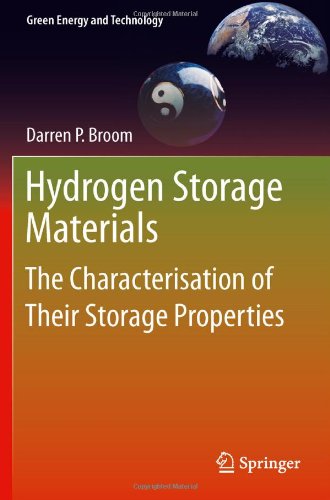

Most ebook files are in PDF format, so you can easily read them using various software such as Foxit Reader or directly on the Google Chrome browser.
Some ebook files are released by publishers in other formats such as .awz, .mobi, .epub, .fb2, etc. You may need to install specific software to read these formats on mobile/PC, such as Calibre.
Please read the tutorial at this link: https://ebookbell.com/faq
We offer FREE conversion to the popular formats you request; however, this may take some time. Therefore, right after payment, please email us, and we will try to provide the service as quickly as possible.
For some exceptional file formats or broken links (if any), please refrain from opening any disputes. Instead, email us first, and we will try to assist within a maximum of 6 hours.
EbookBell Team

5.0
110 reviewsThe problem of storing hydrogen safely and effectively is one of the major technological barriers currently preventing the widespread adoption of hydrogen as an energy carrier and the subsequent transition to a so-called hydrogen economy. Practical issues with the storage of hydrogen in both gas and liquid form appear to make reversible solid state hydrogen storage the most promising potential solution. Hydrogen Storage Materials addresses the characterisation of the hydrogen storage properties of the materials that are currently being considered for this purpose.
The background to the topic is introduced, along with the various types of materials that are currently under investigation, including nanostructured interstitial and complex hydrides, and porous materials, such as metal-organic frameworks and microporous organic polymers. The main features of Hydrogen Storage Materials include:
Hydrogen Storage Materials provides an up-to-date overview of the topic for experienced researchers, while including enough introductory material to serve as a useful, practical introduction for newcomers to the field.